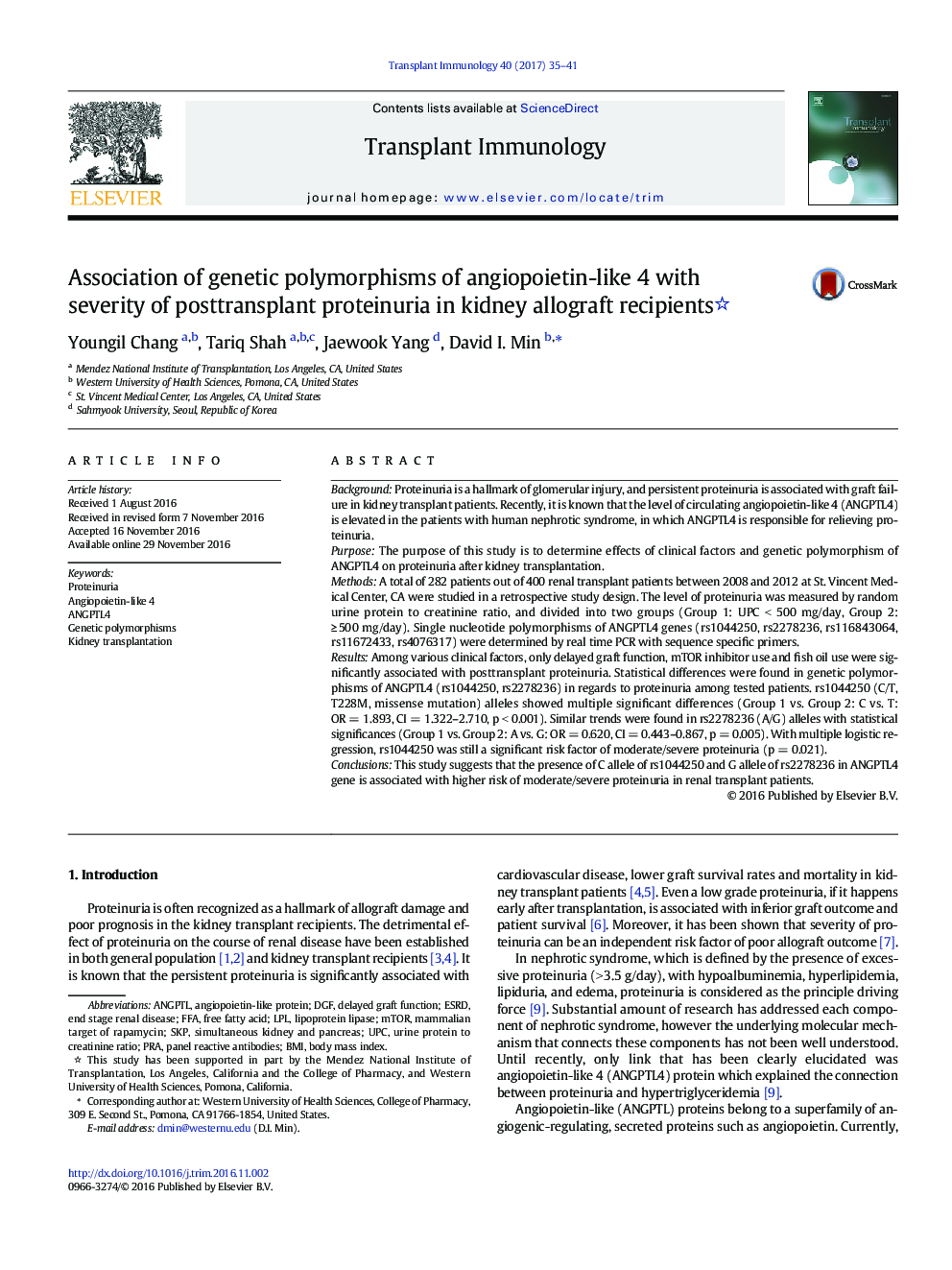| Article ID | Journal | Published Year | Pages | File Type |
|---|---|---|---|---|
| 5670482 | Transplant Immunology | 2017 | 7 Pages |
â¢Posttransplant proteinuria is a hallmark of allograft damage and poor prognosis in the kidney transplant patients.â¢DGF and mTORI use are the clinical factors significantly associated with proteinuria in the kidney transplant patients.â¢SNP (rs1044250) of ANGPTL4 is significantly associated with posttransplant proteinuria in the kidney transplant patients.
BackgroundProteinuria is a hallmark of glomerular injury, and persistent proteinuria is associated with graft failure in kidney transplant patients. Recently, it is known that the level of circulating angiopoietin-like 4 (ANGPTL4) is elevated in the patients with human nephrotic syndrome, in which ANGPTL4 is responsible for relieving proteinuria.PurposeThe purpose of this study is to determine effects of clinical factors and genetic polymorphism of ANGPTL4 on proteinuria after kidney transplantation.MethodsA total of 282 patients out of 400 renal transplant patients between 2008 and 2012 at St. Vincent Medical Center, CA were studied in a retrospective study design. The level of proteinuria was measured by random urine protein to creatinine ratio, and divided into two groups (Group 1: UPC < 500 mg/day, Group 2: â¥Â 500 mg/day). Single nucleotide polymorphisms of ANGPTL4 genes (rs1044250, rs2278236, rs116843064, rs11672433, rs4076317) were determined by real time PCR with sequence specific primers.ResultsAmong various clinical factors, only delayed graft function, mTOR inhibitor use and fish oil use were significantly associated with posttransplant proteinuria. Statistical differences were found in genetic polymorphisms of ANGPTL4 (rs1044250, rs2278236) in regards to proteinuria among tested patients. rs1044250 (C/T, T228M, missense mutation) alleles showed multiple significant differences (Group 1 vs. Group 2: C vs. T: OR = 1.893, CI = 1.322-2.710, p < 0.001). Similar trends were found in rs2278236 (A/G) alleles with statistical significances (Group 1 vs. Group 2: A vs. G: OR = 0.620, CI = 0.443-0.867, p = 0.005). With multiple logistic regression, rs1044250 was still a significant risk factor of moderate/severe proteinuria (p = 0.021).ConclusionsThis study suggests that the presence of C allele of rs1044250 and G allele of rs2278236 in ANGPTL4 gene is associated with higher risk of moderate/severe proteinuria in renal transplant patients.
